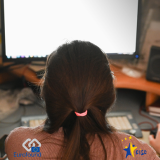EU context
Den 26 april 2017 lanserade kommissionen paketet med den europeiska pelaren för sociala rättigheter. Detta inkluderar ett initiativ för att stödja balansen mellan arbetsliv och privatliv för föräldrar och vårdgivare. Syftet med initiativet är att ta itu med det faktum att kvinnor är underrepresenterade på arbetsmarknaden och det beskriver kortfattat ett antal nya eller förbättrade minimistandarder för föräldraledighet och ledighet för vård av anhörig.
Eurofounds arbete
Datainsamling
Eurofounds undersökningar av livskvaliteten i Europa (EQLS) innehåller jämförelser mellan länder när det gäller möjligheter att förena arbete och familjeliv, flexibla arbetstidsarrangemang och tillhandahållande av vårdtjänster av kvalitet. De europeiska företagsundersökningarna (ECS) tillhandahåller data om hur och varför företag använder sig av ett stort antal olika arbetstidsarrangemang. I de europeiska undersökningarna om arbetsvillkor (EWCS) tittar man på hur arbetstiden organiseras i EU och på frågor som hör ihop med detta, däribland flexibla arrangemang, arbetstidspreferenser och balansen mellan arbetslivet och privatlivet.
Det europeiska centrumet för övervakning av arbetslivet (EurWORK) tillhandahåller information om arbetsvillkor och hållbart arbete, bland annat en databas om löner, arbetstid och kollektiva tvister. Eurofound har också uppskattat de ekonomiska och sociala kostnaderna för sysselsättningsklyftan mellan könen och kan erbjuda information om skapande av sysselsättning inom vården.
Datavisualisering
I fokus: Foundation Focus om lösningar för balans mellan arbetsliv och privatliv
23 december 2016 – I denna utgåva av Foundation Focus tittar man på balansen mellan arbetsliv och privatliv och vissa av de faktorer som hjälper till eller hindrar arbetstagare när det gäller att kombinera arbete med livet utanför jobbet. Eftersom de genomsnittliga arbetstimmarna har minskat stadigt frågar man sig om balansen mellan arbetsliv och privatliv fortfarande är relevant. Hur kan arbetstidsdirektivet hjälpa, och vilken roll spelar strategier för flexibel arbetstid? Vilka specifika stöd behövs av människor med vårdansvar för barn eller vuxna? Balansen mellan arbetsliv och privatliv hör ihop med andra delar av livet, bland annat behovet av barnomsorg av hög kvalitet, vilket innebär att man måste ta itu med sysselsättningsklyftan mellan könen och anpassa sig efter äldre arbetstagare som inte kan fortsätta att arbeta heltid.
Balansen mellan arbetslivet och privatlivet: att skapa lösningar för alla






























